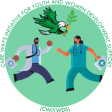Organizers:
- Implementing Partner: American University of Nigeria (AUN)
- Support Organization: Care Ways Initiative for Youth and Women Support Development
In the climate-affected regions of Michika, Bazza, and Kuzum, vulnerable youth and women face significant economic challenges. These communities are particularly affected by a lack of financial literacy and business skills, making it difficult for individuals to start or sustain viable livelihoods. In response, the American University of Nigeria (AUN) and the Care Ways Initiative organized a one-day workshop to provide practical financial literacy training to 25 participants, including 10 women and 15 men.
Workshop Objectives
The workshop was designed to equip vulnerable youth and young women with financial knowledge and skills that would enable them to take control of their economic futures. The key focus areas included:
- Teaching participants to analyze their income and expenses.
- Providing tools for setting financial goals, budgeting, and tracking spending.
- Empowering participants to make informed decisions about saving and borrowing.
Background
Many individuals in the targeted communities struggle with basic financial management due to limited resources and lack of formal business training. The workshop addressed these challenges by offering practical financial literacy tools, with an emphasis on budgeting and savings. By providing beneficiaries with these essential skills, the program sought to reduce financial stress and empower participants to take charge of their financial well-being.
Key Highlights
The one-day workshop included engaging and interactive sessions on various aspects of financial literacy:
- Financial Analysis: Participants learned to evaluate their financial situation, analyzing income, expenses, and savings potential.
- Budgeting Skills: Attendees were guided on how to create personal budgets, track their spending, and identify areas where they could save.
- Empowerment: The training fostered a sense of self-efficacy, empowering participants to claim their rights, contribute to their communities, and make better financial decisions.
- Stress Reduction: With a better understanding of financial management, participants reported feeling more in control of their finances, which reduced anxiety and improved their confidence.
Impact and Achievements
The workshop successfully trained 25 participants, including 4 from women-led organizations. A breakdown of participants showed a diverse age range and a commitment to gender inclusivity:
- Age Groups: 14 participants were between 18-25 years, 9 participants were between 25-35 years, and 2 participants were over 35.
- Gender Representation: 10 female participants and 15 male participants.
The participants came from various sectors and locations within Michika, Bazza, and Kuzum.
Conclusion
The financial literacy workshop proved to be a significant step toward empowering vulnerable youth and women in these climate-affected regions. By equipping them with practical tools for financial planning and decision-making, the program not only addressed immediate needs but also fostered long-term financial stability. The positive feedback from participants highlighted the effectiveness of the workshop in helping them navigate their economic challenges and build a brighter financial future.

